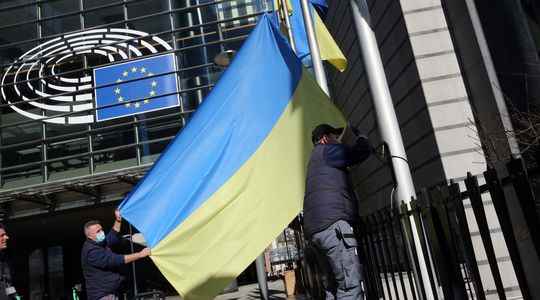No one can currently say who will emerge victorious from Putin’s war in Ukraine, whether it will end, or even what a victory would mean: A peace negotiation? Territories abandoned by the Ukrainians? Territories reconquered from the Russians? Against the backdrop of deadly bombardments and the slow advances of Russian troops in the Donbass, the European Union and G7 summits which have just followed one another have confirmed the international community’s support for kyiv and the Kremlin’s determination to to obtain the surrender of the Ukrainian forces, but also the Western concerns in the face of the vertiginous rise in energy prices: will social cohesion, European unity, solidarity with Ukraine resist? heating needs this winter?
Putin is betting on this Western vulnerability. The use of its missiles and dependence on hydrocarbons that he has skilfully woven over two decades are the two assets that can still make him win the war of hard power. The Western allies have already won that of the soft, and it is the second war that is being played out on our doorstep. Sweden and Finland are about to join NATO. The Ukrainians are delighted to soon belong to the European Union, the only one capable of ensuring the defense of their national sovereignty. They prove to the world, at the cost of bloodshed, that the soft-power European liberal and parliamentary democracies is more attractive than that of the Russian dictatorship inherited from the Soviet Empire.
Putin produced the opposite of what he demanded: the entry into the EU of new countries from the former Soviet bloc, which he wanted to avoid at all costs, and a new enlargement of NATO, which wanted to shrink at all costs. This is the famous “humiliation” felt by Russia. The crushing by arms of this nation of 44 million inhabitants which has the audacity to prefer the European Union is the disproportionate punishment of a dictator upset at not being liked.
Ukraine pays for its desire to join “the Western collective”
By approving the immediate granting of candidate status to Ukraine – and to Moldova, threatened in the front line – the 27 European leaders have therefore validated the most legitimate of demands. The Ukrainians are paying with their lives for their desire to join the EU, repeated election after election. This stubbornness to want to be with us obliges us, because it is the only real reason for the war waged by Russia. After the “orange revolution” of 2004, which revealed the split in Ukrainian society between a pro-Russian minority and a pro-European majority, it was the Ukrainian government’s decision to abandon an association agreement with the EU that sparked the bloody demonstrations on Maidan in kyiv, from November 2013 to February 2014. They are what led to Vladimir Putin’s reprisals in Ukraine: annexation of Crimea, support for pro-Russian separatists in Donbass, war of invasion.
Under the false pretext of the enlargement of NATO, the Russian president revealed by his actions as much as by his writings the hidden reason for his savage and senseless war: the unbearable desire of the Ukrainians to join “the Western collective”, cruel mirror of soft-power of which he deprived his own country.
Winning the attractiveness war nevertheless opens a Pandora’s box. France has always been reluctant to the principle of an enlargement of the EU without institutional reform – unlike Germany or the United Kingdom, supported by Washington, who preferred a vast market open to free trade to a political Europe . Accelerating Ukraine’s candidacy now makes it impossible to forget the Western Balkans, which have been struggling for years to meet membership standards.
French President Emmanuel Macron, whose energy in instilling the visionary idea of ”European sovereignty” has taken the Twenty-Seven by leaps and bounds, once again took the lead by advancing the idea of a “political community European Union” – mentioned differently by Enrico Letta, leader of the Italian Democratic Party, and by Charles Michel, President of the European Council. It is not an alternative to membership, insists the Elysée, but a means of associating with the EU the countries which, from Ukraine to the United Kingdom, cannot yet join it – or cannot. do not want. While Putin is counting only on our disintegration, this reform stands out as a decisive weapon.
